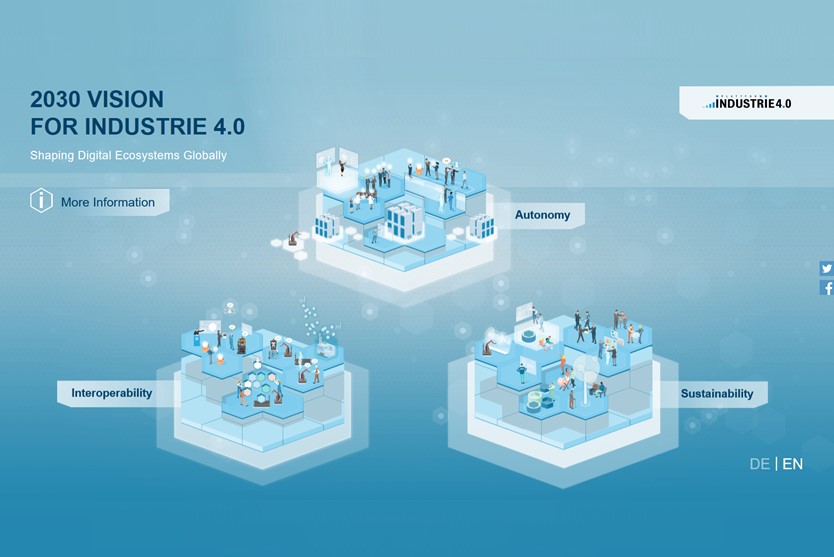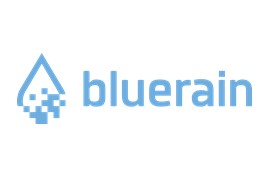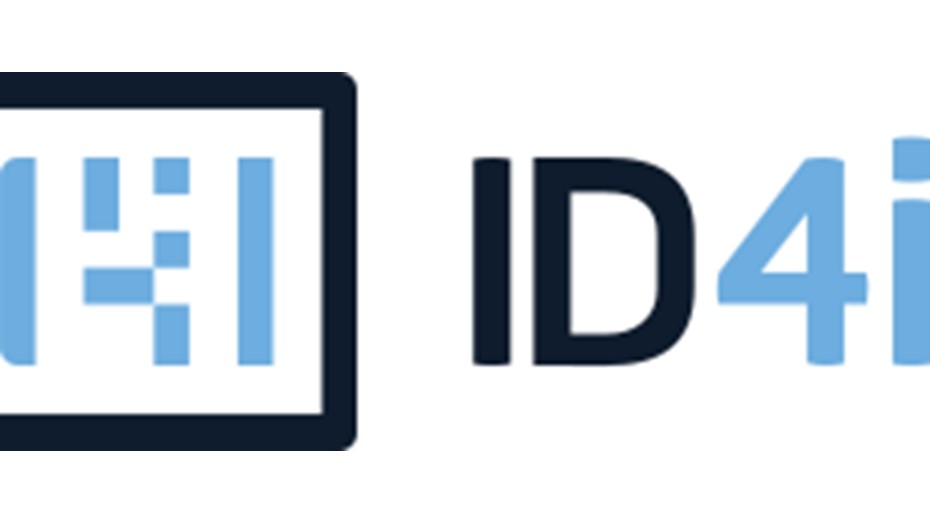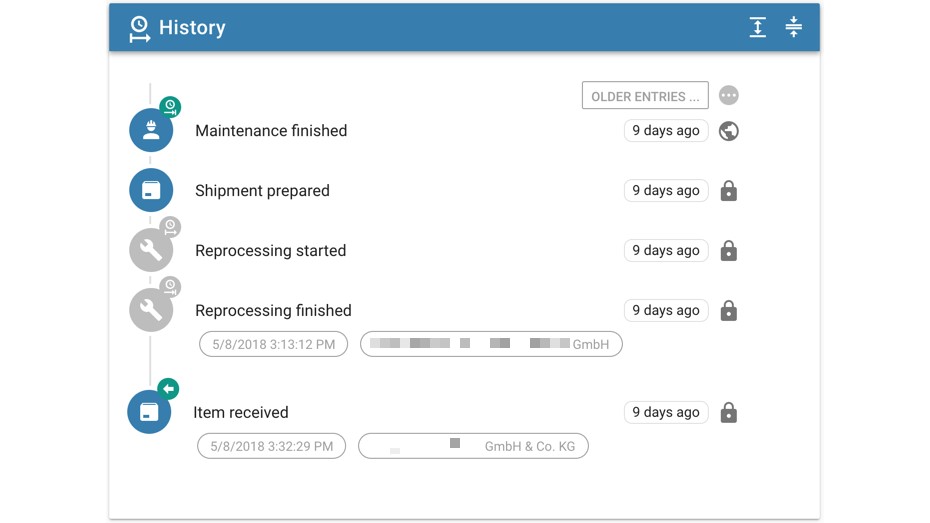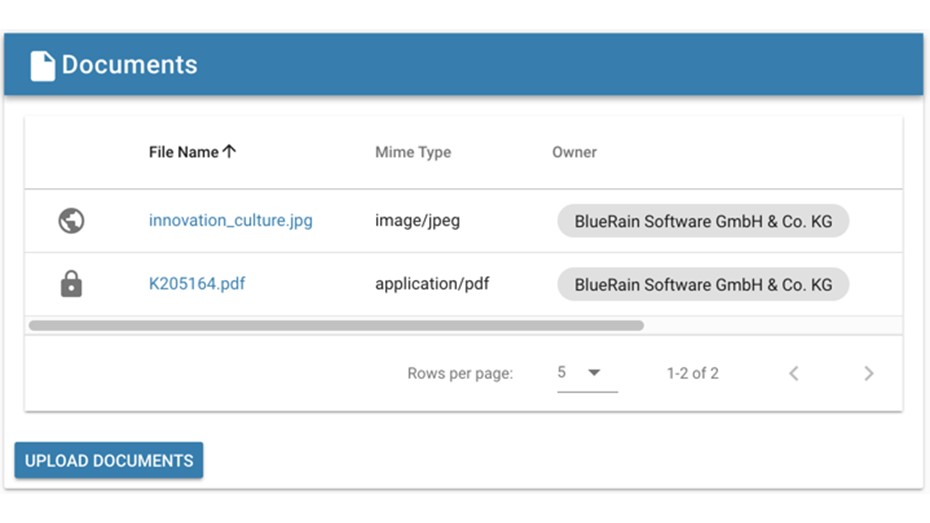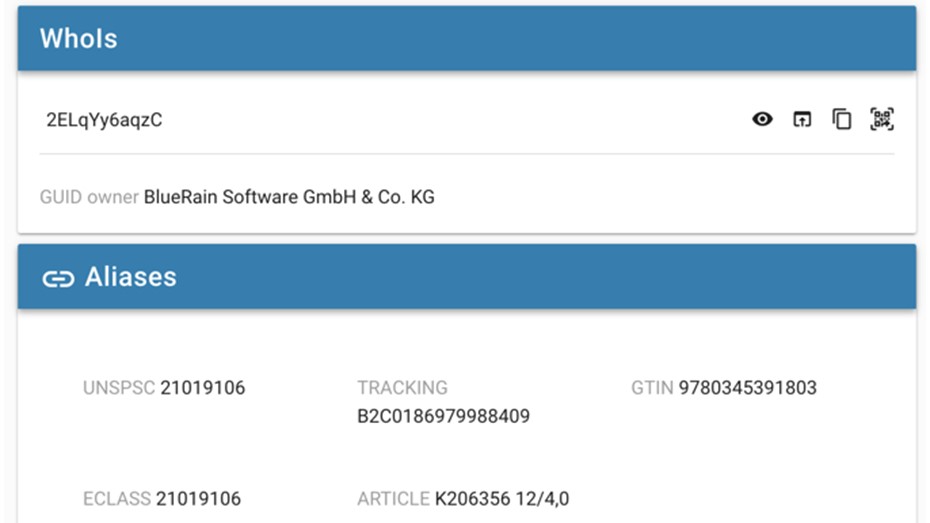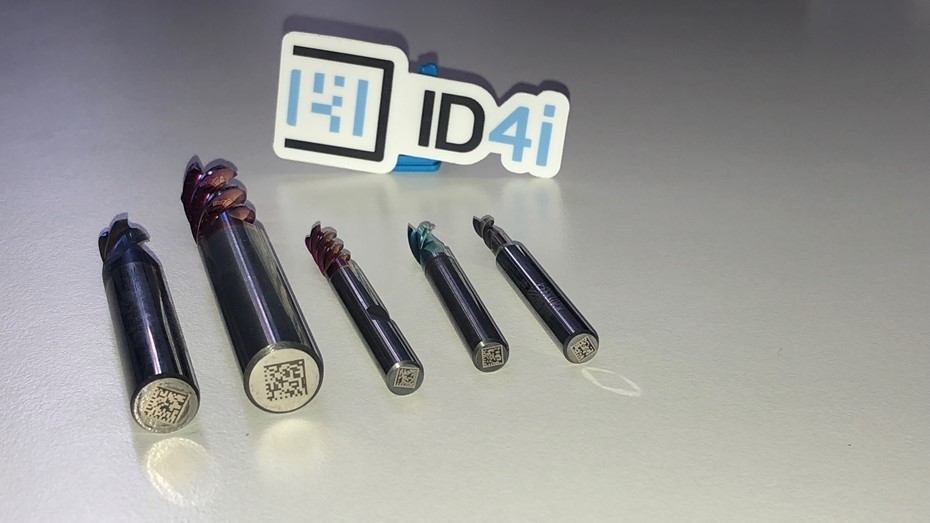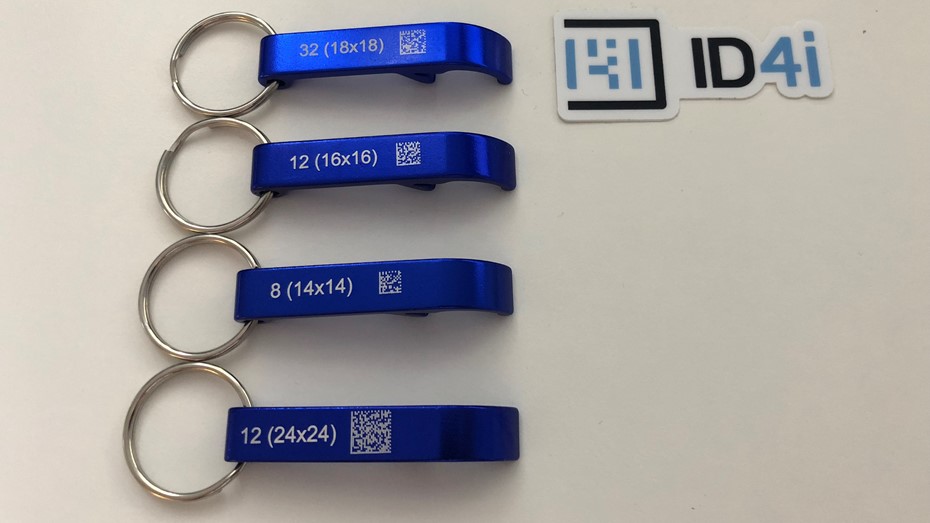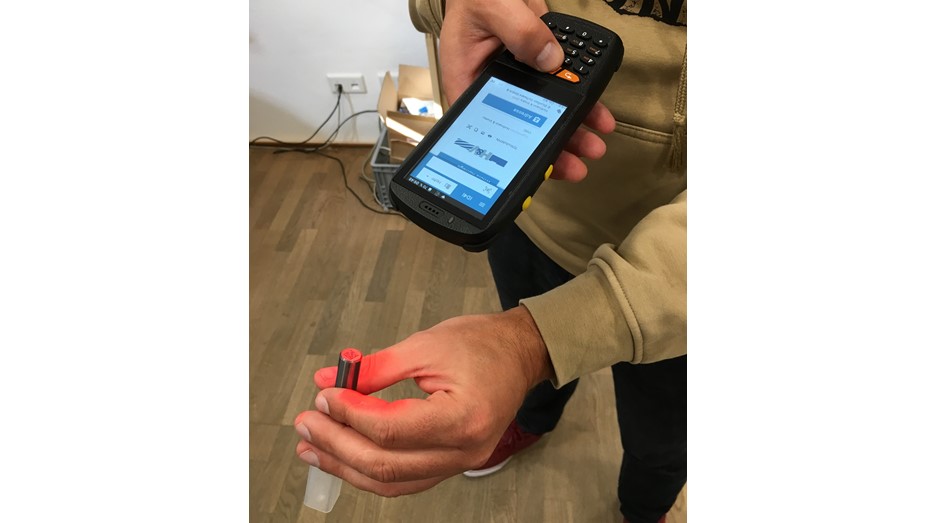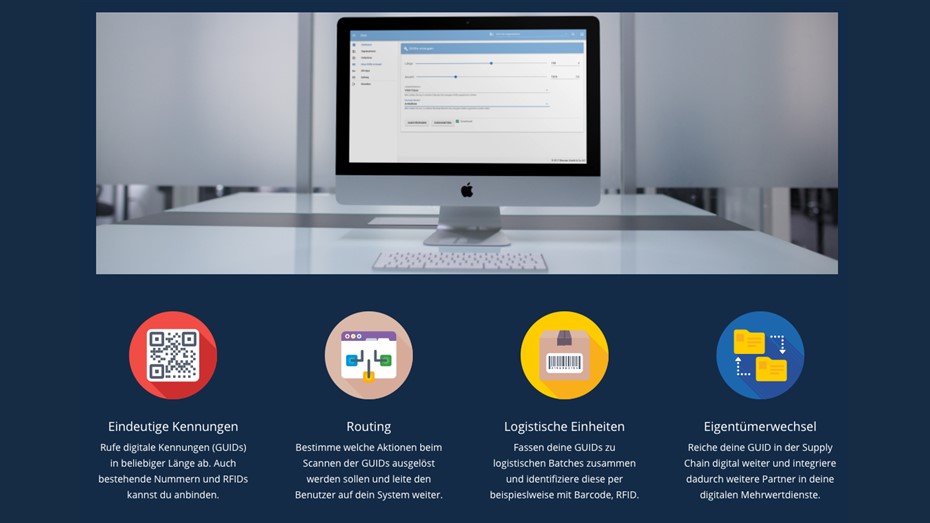What were the challenges to be solved and what specific benefits were achieved?
BlueRain Software recognizes the absence of unique identification of single workpieces in tool manufacturing as major obstacle to inter-company processes. This holds true throughout the complete lifecycle of tools.
A second challenge is permission management and access control in private labelling and OEM manufacturing scenarios. Each company involved in the manufacturing process should be allowed to attach private data to their products but need to completely control its visibility. Furthermore, sub-contractors may or may not be visible to other companies in the manufacturing chain.
Together with our partner Hofmann & Vratny OHG (www.hofmann-vratny.de), ID4i was created as platform to facilitate communication between manufacturer, raw material suppliers, coating suppliers and wholesalers.
BlueRain Software GmbH cooperates closely with Hofmann & Vratny OHG, a leading manufacturer of solid carbide milling tools.
ID4i enables Hofmann & Vratny, its customers and suppliers to...
- ...reduce cycle time in cross-company processes significantly
- ...access analytical data created in production and by suppliers on single workpiece level
-
...trace single workpieces across suppliers, sub-contractors and customers
ID4i as a solution is not restricted to this specific process but rather has the potential to provide an industry standard due to its nature as an open platform.
Our partners aim for shorter cycle time in processes spanning multiple organizations. One concrete example is the regrinding and coating of milling cutters that are distributed via a wholesaler.
ID4i focuses on the serialization / unique identification of single workpieces and the exchange of attached information across organizations.
This specific focus and the implementation as open platform significantly lowers the threshold for implementing single workpiece related IIOT / Industry 4.0 processes for companies using ID4i.
Pricing is pay-per-use only to also enable small and medium sized businesses to participate without big up-front investments.
How can the Industrie 4.0 approach be described?
ID4i provides an open platform via an HTTP API that participating companies can use to integrate. It enables creating and managing unique IDs and exchange of attached data.
By using ID4i as intermediary for data exchange and life cycle information the communication between – directly and indirectly – connected companies is significantly simplified, as the requirement for multi-lateral interface definition and implementation between single companies can be omitted.
To facilitate integration, BlueRain Software provides client libraries for many programming languages and extensive documentation and tutorials as well as developer support.
What could be achieved?
Participating companies can exchange arbitrary single workpiece data throughout the complete manufacturing, sales and maintenance process and trace workpieces. Currently, multiple pilot projects are being implemented.
Specific examples are the regrinding of milling tools and maintenance of manufacturing machines for metal tubes.
The regrinding process is defined as follows:
- A wholesaler sells tools from different suppliers to its customers.
- The customer sends tools back to the supplier for regrinding at a later point in time. This also happens multiple times per tool.
- The supplier sorts the tools by original supplier and orders regrinding for the tools at the respective suppliers.
- Each supplier distributes the tools in the order to the corresponding machines and completes the order.
- Afterwards, the supplier sends the tools to sub-contractors for additional processing steps, e.g. coating.
- The sub-contractor again distributes the tools to different machines and process them.
- Sub-contractors send the processed tools back to the supplier.
- The supplier sends the processed tools back to the wholesaler.
- The wholesaler collects and sends the tools originally contained in the order back to its customers.
-
All companies in the chain add quality and test information and send it – along with the processed tools – back to the respective client.
Today, the following challenges are met with high manual effort and with the risk of process errors:
- How can be guaranteed, that refurbished tools are assigned to the correct client order?
- How does the wholesaler prevent its customer from finding out which suppliers are involved (private labelling, OEM)?
- How does the wholesaler / supplier find out the state of the complete order?
- How can an order be shipped in multiple parts?
- How can customers get quality / test protocols from suppliers and sub-contractors without knowing the actual company performing the tasks?
ID4i solves these challenges by:
- Serialization of incoming tools (if not already serialized). In this case, data matrix codes containing the ID4i ID are lasered onto the tools.
- Exchange of documents regarding orders and tools.
- Providing a history for each tool and order.
- Visibility restrictions of attached documents and history items.
- Sharing of documents with defined companies or publishing them.
-
Flexible integration for participating companies by the PaaS / API approach.
A second project supports maintenance of manufacturing machinery of metal tubes:
- In production machines, custom built parts are used.
- These parts have a long lifespan, but need to be refurbished in short intervals.
-
Since the parts are custom built by the company itself, production cost is comparatively high.
Today, the mechanic has to decide on estimates / gut feeling / experience whether the part to exchange can be refurbished during performing the maintenance tasks.
An error in his decision leads to either increased cost (a part that could be used further is thrown away) or increased risk (a part that has already been refurbished often is re-used and can lead to machine downtime if it breaks).
ID4i serializes the parts and tracks each maintenance operation. The mechanic can check the parts on a mobile device during the maintenance by simply scanning the code on the part. Thus, he can use the history of the specific part to reach an informed decision about refurbishing / replacing / selecting parts.
Additionally, partner companies that support the refurbishing process provide quality protocols and exchange order documents through ID4i.
What measures have been taken to achieve the solution?
Each of the pilot projects currently being implemented on top of ID4i connect multiple companies involved in a production / maintenance process. This allows customers to gather experience with integration as well as provide actual business benefits as described above.
Pilot projects are implemented by the companies using ID4i in correspondence with and with support of BlueRain Software GmbH & Co. KG and possibly additional implementation partners.
What can others learn from it?
The integration of ID4i in existing infrastructure and processes is realized using small and simple software modules, that are attached to the steps of the corresponding production / logistic / maintenance processes and exchange the process step’s data though ID4i.
Successful integration projects work in an incremental fashion, process step after process step. Implementation of the integrating modules for internal systems (typically ERP, MDM, PIM) should be done by developers coming from the company using ID4i or their partners.
The actual implementation of the modules is typically very lean, so having cross functional teams including developers and domain experts from the beginning (also for proof-of-concepts / pilots and design) leads to tangible results quickly. We implemented working prototypes in parallel to the design/specification workshops and found it much easier to discuss the final solution using actually working prototypes.
This also reduces time-to-market for pilot projects by a fair margin.
To guarantee process reliability, marking the workpieces and reading the codes needs to be tailored to the type, material and intended usage of the workpiece.
Significant are
- Code Format of the ID (e.g. Data Matrix, RFID, QR Codes)
- Code Readers (barcode scanners, mobile devices w/ camera like smart phones and tablets)
- Code Size
- Durability of the marking method (laser, print, durable tags)


